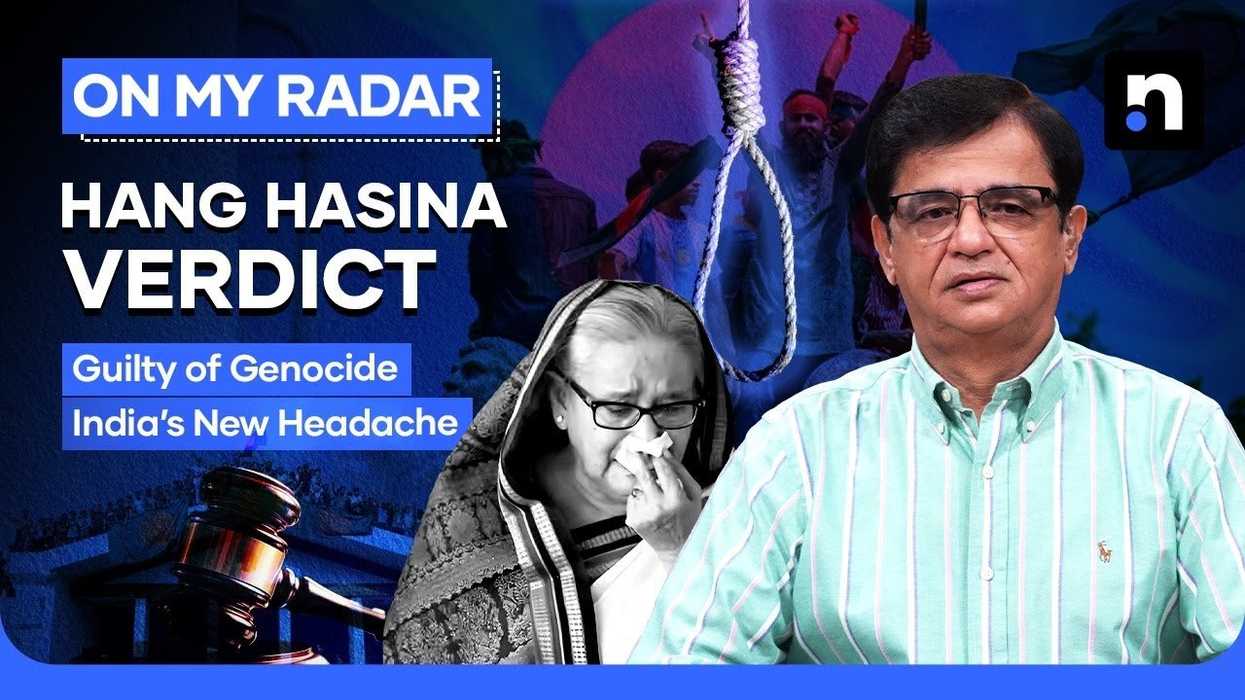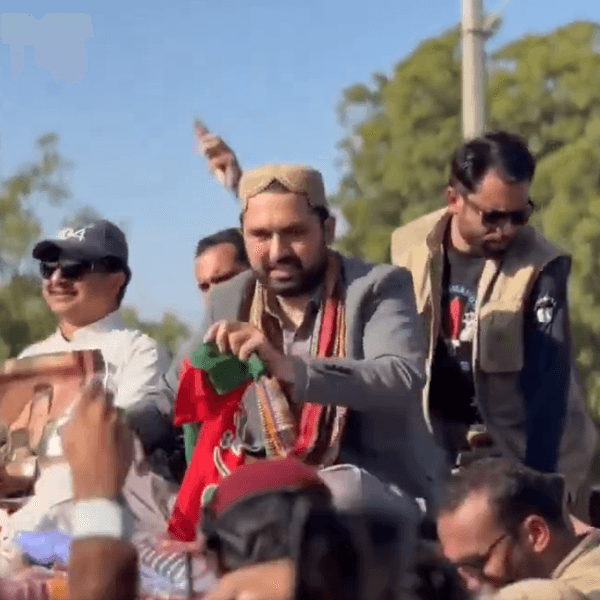Bangladesh tribunal convicts ex-PM Sheikh Hasina for crimes against humanity
Kamran Khan says Hasina’s conviction highlights alleged abuses and strains Dhaka-New Delhi ties
News Desk
The News Desk provides timely and factual coverage of national and international events, with an emphasis on accuracy and clarity.
In a landmark judicial decision, Bangladesh’s International Crimes Tribunal has convicted former prime minister Sheikh Hasina Wajid of crimes against humanity, handing down death sentences in two cases and life imprisonment in three others.
The ruling comes more than a year after her dramatic ouster from power, bringing legal closure to a tumultuous chapter in Bangladesh’s recent political history. Hasina, who led the country for over 15 years, currently resides in India with her daughter Saima Wajid, having fled the country in August 2024 following widespread anti-government protests.
In the latest episode of On My Radar, Kamran Khan said that the tribunal’s verdict underscores both the gravity of the alleged abuses under Hasina’s administration and the challenge her presence in India poses for diplomatic relations between Dhaka and New Delhi. He added that Hasina’s conviction, delivered in absentia, highlights a rare moment of judicial assertiveness in the region.
The tribunal found that Hasina had ordered a crackdown on anti-government demonstrators between July 15 and August 5, 2024, resulting in approximately 1,400 deaths and thousands of injuries. The protesters, largely students, had initially gathered to demand basic rights, but when demonstrations escalated into a broader political movement, the government responded with lethal force.
Hasina’s co-accused include former Interior Minister Asadul Zaman Kamal and former police chief Chowdhury Abdullah Al Mamun, who were also sentenced to death for their alleged role in orchestrating the violence.
Despite repeated court summonses, Hasina refused to return from India, dismissing the proceedings as a “legal farce.” She was provided state-appointed counsel, but she did not acknowledge the tribunal’s authority and continued to deny all charges.
Prior to the verdict, an interim government led by Nobel laureate Muhammad Yunus had formally requested her extradition from India. New Delhi has reportedly delayed or ignored these requests, raising questions about potential diplomatic friction.
The Indian Express has described Hasina as a “diplomatic headache” for India, pointing to the country’s historical role in sheltering political figures fleeing their home nations.
The 2013 extradition treaty between Bangladesh and India allows for the repatriation of fugitives whose alleged crimes carry a minimum one-year sentence, though Article 6 provides exceptions for political offenses. However, Hasina’s convictions - including charges of murder, forced disappearances, and genocide - could make political asylum in India extremely difficult, if not impossible.
The tribunal also ordered the confiscation of the convicts’ assets for distribution among the victims’ families. During the proceedings, judges criticized the use of force against students instead of dialogue and noted the deployment of lethal weapons, including drones and helicopters, against demonstrators.
Hasina had previously released an audio message claiming that Muhammad Yunus’s interim government was seeking to prevent the Awami League from contesting elections. In March 2025, an audio leak allegedly recorded her authorizing security forces to shoot protesters on sight.
The final hearing and sentencing were broadcast live across Bangladesh, ensuring public transparency. The prosecution’s evidence comprised over 8,700 pages of documents, witness statements, and lists of victims spanning more than 2,700 pages. Analysts note that this case mirrors a broader trend in South Asia, where political leaders in Pakistan, India, Bangladesh, Sri Lanka, Nepal, and the Maldives have faced allegations, trials, or sentences for alleged abuses of power.
Hasina’s conviction effectively ends her political career and could weaken the Awami League’s influence. Moreover, it is expected to strain diplomatic ties between Dhaka and New Delhi, as both sides navigate the complex implications of her presence in India while enforcing accountability for crimes committed during her tenure.








Comments
See what people are discussing